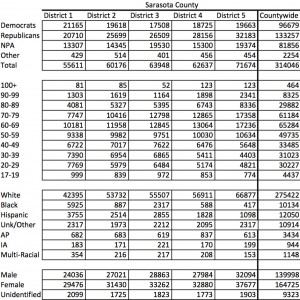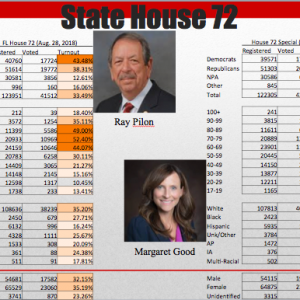Serendipity and Requirements
Guest Correspondence
SRQ DAILY
SATURDAY MAR 12, 2016 |
BY DONAL O'SHEA
I received a letter last week from a national organization deploring the fact most college students could not identify James Madison as the Father of the U.S. Constitution (most chose Jefferson) and that 40 percent did not know that Congress has the power to declare war. Their solution: a course on civic literacy required of every college student.
A couple days later, I talked with a delegation of students concerning the lack of intercultural competence among their fellow students. Some of their classmates use phrases that have been used historically to demean others and are ignorant of the chilling effect of such speech. Their solution: a course on cultural competence required of every college student.
Other groups decry college students’ lack of mathematical and quantitative literacy, of historical knowledge, of basic financial knowledge, of writing skills. Common to all is the proposed solution: a new required course.
Some observers of higher education go even further. They advocate, usually in the name of efficiency, carefully planned curricula with little student choice, one course leading to another, and lots of requirements.
Good intentions surely, but a path that courts disaster. Required courses almost always become bad courses.
Why? Colleges are marketplaces: ideas are exchanged, professors vie for students and students for professors. The currency is not dollars, but student enrollments. Make a course required and you remove the incentive for whoever is teaching that course to make it attractive to students. Professors are busy and need to allocate their time carefully. Subsidizing a course by guaranteeing enrollment will cause a professor to devote more attention to other, unsubsidized courses. Moreover, because departments also care about enrollments, they will not place their most gifted faculty members in a course in which enrollments are guaranteed. They will use their best faculty members to attract students to the major or to get students through the hardest courses
If you doubt this, think back to some of the worst courses you ever had. Or note that taking a course does not guarantee a student will learn what the courses purports to teach. Civics courses are required in most high schools. It they worked, college students would not be lacking civic knowledge.
I’m not suggesting that there should be no requirements. Just as unregulated free markets concentrate capital, unregulated curricula concentrate enrollments. Think massive, entertaining, undemanding lecture courses. But the opposite, centrally planned, highly sequenced curricula with lots of top-down requirements, are essentially Marxist economies. And we all know how those work—poorly.
Markets function best when there is equal and easy access to information. And students must have good information about what they can expect to learn in a class, and why it is important. Transparency is as important to universities as it is to financial markets.
But the way regulations are structured also matters.
Think back to the best educational experiences that you have ever had.Common to most such experiences will be serendipity: the intervention of a gifted professor, reading a spell-binding book at exactly the right time, taking an inspiring course or excitedly talking over an idea with a friend in a residence hall. This is the reason that distribution requirements, which require students take courses in different disciplines, are important. It’s not just about breadth and exploration. Rather, a good institution goes to great trouble to hire gifted faculty, and distribution requirements spread students over that faculty. They increase serendipity by increasing the odds that a student will encounter a gifted faculty member who changes his or her life.
In addition to maximizing opportunities for serendipity, a good university will make it difficult for students to miss learning material they will need subsequently. Rather than simply requiring a course, a good institution will make sure that the outcomes desired of students are reflected in many of the courses those students will take. To ensure that students write well, for example, students must practice writing in most courses they take. The same goes for civics or intercultural competence. This is the job of a good faculty working together to align many different courses. It is not easy, and it requires a deft touch and thoughtfulness.
Higher education, like the economy, would be simpler if a benign leader could just require things. But it wouldn't be better (and it wouldn't be higher).
Dr. Donal O'Shea is president of New College of Florida.
« View The Saturday Mar 12, 2016 SRQ Daily Edition
« Back To SRQ Daily Archive











